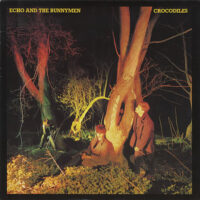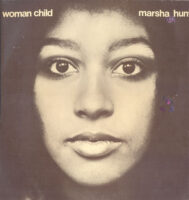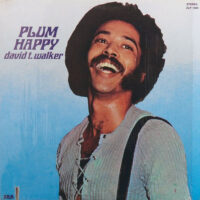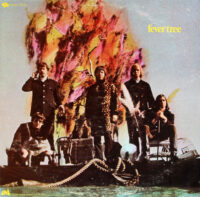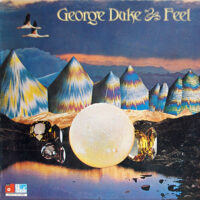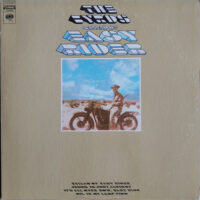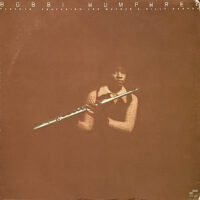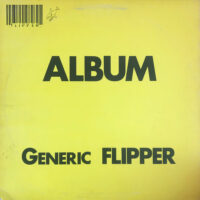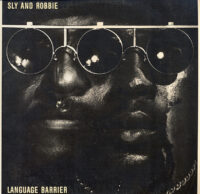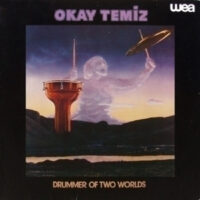
Besides having one of the coolest names in music, Okay Temiz has been a key rhythmic force in the zone where jazz meets “world” music. The Turkish drummer/percussionist has worked with deep musicians such as Don Cherry, Björn J:son Lindh, Johnny Dyani and Mongezi Feza (in the group Xaba), Tony Scott, and others while maintaining a long, fruitful solo career. Unlike many jazz musicians of a certain vintage (Okay was born in 1939 and is still living), Temiz has released excellent LPs well into the 1990s. But for my money, the standout in his catalog is 1980’s Drummer Of Two Worlds.
On this nine-track stunner, Temiz composed, arranged, and played a long list of percussion instruments, including sheep bells, thavil, cuíca, berimbau, Jew’s harp, Indian tuned sticks, and goblet drum (aka darbuka)—some of which he constructed himself. On Two Worlds, he received crucial help from Arif Sag (saz), Ziya Aytekin (woodwinds), and Attila Özdemiroğlu (synth). It turns out, when you make your own instruments as well as possess otherworldly skills and unique ideas, amazing, hard-to-categorize music ensues.
Temiz may be Turkish, but his sound diverges even from that Middle Eastern country’s distinctive output. It’s hard to imagine a more arresting start to an album than “East Breeze.” An utterly gripping berimbau intro leads into a dance-floor banger full of weird tones (what is producing that wild low frequency?!), a sinuous earworm whistle, rococo berimbau motif, an oddly metered groove (9/8?), and amphetamine bongos. “Galaxy Nine” defies all logic and classification, its tensile Jew’s harp wowows, rapid-fire drum triplets, metallic and wooden percussive accents building to a hectic cacophony.
With its insane monkey chatter and laughter, vibrant birdsong, and mercurial metallic percussion, “Ocean Roller” would stop you dead in your tracks if you heard it in public. Lest you think Temiz couldn’t get funky, “Penguin” offers solid, in-the-pocket funk with a woodwind that sounds like frog hiccups and harp-like strings (gopijantra, I think) adding distinctive texture. It may surprise some that Geto Boys’ Scarface sampled this track. “Drummer Of Two Worlds” brings god-like fusion motion—a magnum opus of funky disorientation. Let’s call it “whirled music for twirling dervishes.” The album closes with “Fantasia Drive,” a percussion orgy with crazy berimbau fibrillations rippling through it. An imaginary soundtrack for the most exciting car-chase scene ever, the song boasts timbres seldom heard anywhere. “Fantasia Drive” seems to be mutating and dispersing with each passing minute, as if in a science-lab experiment. Temiz’s peak record exists in its own unprecedented, psychedelic world.
CAZ PLAK reissued Drummer Of Two Worlds in 2024, so it shouldn’t be too hard to find. DO NOT SLEEP. -Buckley Mayfield
Located in Seattle’s Fremont neighborhood, Jive Time is always looking to buy your unwanted records (provided they are in good condition) or offer credit for trade. We also buy record collections.


